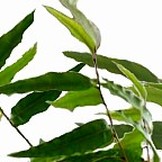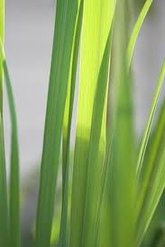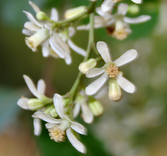 Summer brings sun and fun . . . as well as those pesky insects. Staying bite-free without having an unpleasant odor or using chemical-based repellents is easy to do with natural plant-based ingredients. They can be as effect as the chemical DEET, or diethyltoluamide, which is an oily chemical fluid that repels biting bugs; however, DEET can be harmful to your health, especially with overuse. Why take that chance? In a 2011 study on plant-based insect repellents conducted at London School of Hygiene and Tropical Medicine and Ifakara Health Institute in Tanzania, plant-based insect repellents may not have undergone the safety testing that DEET-based repellents have, yet they are deemed safe because they’ve been around a long time. Jeffrey Band, M.D., an infectious disease specialist, epidemiologist and chief of infectious diseases at William Beaumont Hospital in Royal Oak, Michigan, and director of the hospital’s Interhealth: Health Care for International Travelers, states that natural insect repellents are based plant ingredients, such as oil of lemon eucalyptus, citronella, Neem [tree] oil and even wild tomatoes. Here are some suggestions on what you can use, instead of DEET. Natural Insect Repellents  Lemon Eucalyptus Comes from leaves and twigs of an Australian tree, repels mosquitoes, ticks and flies, and is recommended for use by the Centers for Disease Control and Prevention (CDC), if you are traveling to an area where malaria and yellow fever are primary concerns. This oil masks 340 different scents our skin gives off that are target locators for insects, according to the Agricultural Research Service, the U.S. Department of Agriculture’s chief scientific research agency. Note: It’s easy to confuse lemon eucalyptus oil with the essential oil of lemon eucalyptus, which isn’t approved by the Environmental Protection Agency (EPA) as an insect repellent. The essential oil does provide protection, though it is not recommended for use in disease-endemic countries. Mixed with a fixed oil, such as jojoba or sesame (natural sunscreen), the essential oil is safe for wearing in the backyard swimming pool or to a local park.  Citronella This is perhaps one of the oldest and most widely used plant-based insect repellents. It is derived from dried cultivate grasses, and its strong smell repels mosquitoes, sand flies, ticks, midges and flies by masking the smell of human skin. The strong odor may be offensive to some, so it is best mixed together with other essential oils, such as geranium, in a fixed oil like jojoba or sesame. It’s as effective as DEET, has a 50-year safety record, according to the CDC and is EPA-approved.  Neem Extracted from the seeds of the Indian Neem tree, this is a well documented repellent that can actually disrupt the reproductive and molting cycles of mosquitoes, head lice and fleas. Insects can’t feed or reproduce off from it, so they leave. It can offer up to eight (8) hours protection from mosquitoes, based up a 2003 study performed at Venezuela’s Instituto de Salud Publica, which recommended its use in countries with malaria and yellow fever. Neem oil is often used in skin moisturizers and soaps, and is supported as such by the EPA, so as a skin lubricant, it need not be washed off after use, as other chemical repellents should.  Wild Tomato Cornell University and North Carolina State University researchers have discovered that tomato plants carry a compound, which is an effective repellent against mosquitoes and other biting insects, including ticks. Tomatoes have alkaloids in their leaves, which act as a natural insect repellent and mimic DEET but without the potential health hazards. This compound was approved by the EPA in 2007. Tomato leaves are not known to be toxic to humans but always use caution in of allergies; however, they are toxic to pets.Leaves soaked overnight make an effective solution in the garden on plants and as an insect repellent. Soak 1 to 2 cups of chopped or mashed tomato leaves in 2 cups of water overnight. Strain through cheesecloth or fine mesh, add about 2 more cups of water to the strained liquid. Be sure to keep this spray and the leaves away from your pet. Other oils to consider for repelling insects include thyme, rose, palmarosa, peppermint, cedar, patchouli and clove, according to a recent 2011 London study, as well as cinnamon, rosemary, lemongrass, peppermint, geranium, verbena, pennyroyal, lemon, lavender, pine, cajeput, basil, and castor oil.
Clove oil provides 100% protection for two (2) to four (4) hours, based on a 2005 study by Mahidol University in Bangkok. For maximum protection, it is advisable to mix clove oil with other oils. Carolyn Dean, M.D, N.D., of Hawaii is a naturopath and physician specializing in alternative medicine, and she suggests a combination of cedar, rose, geranium and clove by combining 10 to 25 drops of essential oils with two (2) tablespoons of oil, such as olive, sunflower or other vegetable oil. Be aware that some may find the scents too strong or offensive, however, if mixed with other oils, you can create a pleasant effective combination. Though they may last longer, it is advisable to reapply natural insect repellents every two (2) hours and more often if skin becomes wet, as they are not waterproof and must be reapplied after swimming, rigorous exercise and sweating. Other application tips: · Apply repellent only to exposed skin and never under clothing because it increases the risk of skin irritation. Instead, tuck pant legs into socks and wear long sleeves, Lea advises. · Don’t put on cuts, wounds or rashes, because bug sprays can worsen the irritation. · Don’t apply near eyes or mouth and use sparingly around ears. · Don’t spray directly on the face. Instead, apply on hands first and then rub on your face. · Wash hands after application to avoid accidental exposure to eyes. · Never let children apply insect repellent themselves. Instead, put some on your hands first and then gently spread on exposed skin, avoiding their hands, which often go into mouths. · Use just a thin layer of repellent to cover exposed skin. More isn’t necessarily better. If the insects are still biting you, apply more repellent. · After returning indoors, wash treated skin with soap and water. · Wash treated clothing before wearing it again. · If you experience a rash, itching, swelling or other side effects, wash off repellent with mild soap and water and discontinue use. We have found a great combination that is quite pleasurable and works effectively against mosquitoes with essential oils of lemongrass, peppermint, lemon and lavender, mixed with oils, butter and waxes. We are currently in the testing stages for this product and expect it to be available on our website very soon.
22 Comments
|
Contact UsAuthorWelcome! I'm Stephanie (Jo to close friends), founder of EdenSong. Aside from my university studies, I have a natural passion for all things organic. I enjoy living and learning about natural ways, all things health related, cooking, gardening with herbs and flowers, photography, DIYing, yoga, bicycling, ballet, traveling and being with family and friends. A quirk of mine is my near obsession of Asian culture, particularly Korean history and its language. Would you like to know more? Find out about us. Categories
All
Archives
December 2014
© EdenSong Essentials
All Rights Reserved |
|
Sign up for monthly free tips and recipes.
|
Shop About Us Contact Us Ingredients Endorsements Terms & Policies Get in Touch Customer service or wholesale inquiries, please leave us a message: 615.292.1000 Or better yet, email us: [email protected] |
Connect Socially
© EdenSong Essentials
All Rights Reserved |




